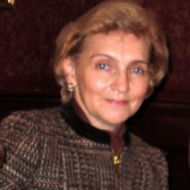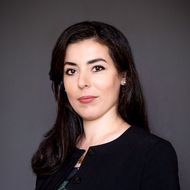- A
- A
- A
- ABC
- ABC
- ABC
- А
- А
- А
- А
- А
- HSE University
- Faculty of World Economy and International Affairs
- School of International Regional Studies
- News
- The Prospects for Trade and Economic Cooperation between Russia and the GCC Countries at the Present Stage
-
School
-
Online

The School of International Regional Studies is a research and educational centre seeking to revive international regional studies as an academic discipline in Russia. The department’s world-class professors train the next generation of regional studies specialists while developing an increasingly prestigious research school.
Kanaev E., Adno Y., Afontsev S. et al.
IMEMO RAN, 2024.
In press
Kozylov I.
Russia in Global Affairs. 2024. Vol. 22.
In bk.: Towards a Hybrid, Flexible and Socially Engaged Higher Education. Proceedings of the 26th International Conference on Interactive Collaborative Learning (ICL2023), Volume 1. Iss. 1. Cham: Springer, 2024. P. 511-519.
Shein S., Ryzhkin E.
Political Science. PS. Высшая школа экономики, 2022. No. 89.

The Prospects for Trade and Economic Cooperation between Russia and the GCC Countries at the Present Stage
The meeting was organized and moderated by ProfessorVera Vishnyakova, Head of the HSE School of International Regional Studies of the Faculty of World Economy and International Affairs. The invited experts of the meeting were leading experts in Arab countries:Andrey Baklanov, First Class State Advisor to the Russian Federation, Ambassador of Saudi Arabia, Professor and Head of the Middle East and North Africa Studies Section of the School of International Regional Studies, Faculty of World Economy and International Affairs, HSE University; Imamkulieva Elmira, Visiting Scholar at HSE University; Karamurzov Rinat, Professor of the Department of Economics and Economic Geography of Asian and African countries, Moscow State University.
The expert began his presentation with a brief description of the region and the GCC. The Cooperation Council for the Arab States of the Gulf includes countries such as the Kingdom of Saudi Arabia, the United Arab Emirates, Kuwait, Qatar, Oman, and the Kingdom of Bahrain. The region is a major supplier of hydrocarbon and the largest global financial center. Among the most promising areas of trade and economic cooperation between Russia and the Gulf countries, the expert identified four main ones:
1. Trade and economic cooperation
2. Fuel and energy sector
3. Agricultural sector
4. Investments.
The expert examined the volume of trade not only with each country of the GCC separately, but also identified individual regions of Russia, with which trade was higher than with others. So, for example, Kuwait is cooperating to a greater extent not with Moscow, but with the Sverdlovsk region, while the UAE, the major exporter of plate, is actively cooperating with Yakutia.
A main distinctive feature of all Gulf countries was a sharp decrease in trade with Russia in 2019, while the preceding 2018 was the peak. The expert explained the increase in trade between countries by signing several agreements and memoranda. In almost all countries, exports from Russia far exceed imports, except for Qatar, where imports and exports are almost equal.
Among the Russian structures that are involved in increasing trade, Professor Latif identified the following: cooperation with Russian regions, the Russian Export Center, the Russian Direct Investment Fund, the Agency for Strategic Initiatives, the CCI, the Intergovernmental Commission of Russia and the GCC countries, the Agro-Industrial Complex, and the Russian Investment Forum, Russian Energy Week, Sberbank, VTB, Vnesheconombank and a number of other economic structures.
According to the information of the Ministry of Energy of the Russian Federation, the trade turnover of Russia and the GCC of energy products from the oil and oil products group for the period of 2018 amounted to $280 million dollars.
Professor Latif analyzed the cooperation of Russia with each individual Gulf country, noting that the state of the world oil market has improved significantly thanks to Russia’s cooperation with various GCC countries, in particular, Saudi Arabia, in the OPEC + format at the present stage. Moreover, according to expert’s estimations, Russia’s participation in the OPEC + format was a good occasion not only to justify optimal foreign policy decisions to regulate the global energy market, but also to draw closer by finding compromises that would help stabilize the situation in the Middle East and become the basis for sustainable socio-economic development of Russia and other oil producing countries.
According to the expert, the “starting point” of interaction between the largest oil suppliers of the Kingdom of Saudi Arabia and Russia was the signing of a joint statement on market stabilization during G-20 Summit in the Chinese city of Hangzhou on September 5, 2016. It is also planned to build a petrochemical plant in Saudi Arabia worth $1.1 billion, under a preliminary agreement between Saudi Aramco and Russian Sibur.
Maintaining and improving food security in the context of economy globalization is a priority for any country. The solution to the problem should not be overlooked either by the side of power structures, or by business, or by the scientific community.
It is important to consider the strong dependence of the Gulf countries on food imports and the issue of food security, which is very acute today. Thus, joint ventures in the agricultural sector are promising, especially those aimed at creating grain hubs and further deliveries of grain to the Middle East. The expert noted that this initiative has been discussed many times by the governments of the UAE, Saudi Arabia, and the Kingdom of Bahrain with Russian companies, but further steps to implement it have not been taken.
In the field of investment, Russia and the Gulf countries have great opportunities. The dynamics of direct national investment is the main indicator for assessing the development of the national economy. In the current conditions of sanctions, when almost all Western markets are closed to Russia, the Gulf countries are the main investors. However, this process is bilateral: if Russia wants to attract Arab investment, it should also invest in the Gulf countries, especially in industries such as industry and tourism.
Today, direct investments by the Gulf countries in the Russian economy are estimated at $ 25 billion, of which more than 22 billion falls on co-investors of the Russian Direct Investment Fund (RDIF). But, unfortunately, the level of project development, lack of transparency, economic benefits and lack of information negatively affect the interest of Arab investors. The leading industries that, according to the expert, may be of interest to Arab investors are: tourism, telecommunications, real estate, healthcare, logistics, industry, oil and gas and agricultural sectors.
At the end of his lecture, professor Latif highlighted the key aspects of further cooperation between Russia and the GCC countries:
1. “Aluminum direction”: Russia is the second producer of this metal in the world at the moment.
2. The OPEC + format, which has already made a huge contribution to the stabilization of world oil markets.
3. The Russian concept of security in the region, which calls on other countries to jointly protect economic and, above all, energy security in the region.
4. Oil and gas industry.
5. Localization of production of military-civilian products (Kalashnikov, KAMAZ, etc.).
6. The common goal of Russia and the GCC countries on the long-term diversification of the economy, in order to reduce its dependence on unstable oil exports.
Video is available to the link: https://youtu.be/GKsnOfjZSGw
- About
- About
- Key Figures & Facts
- Sustainability at HSE University
- Faculties & Departments
- International Partnerships
- Faculty & Staff
- HSE Buildings
- Public Enquiries
- Studies
- Admissions
- Programme Catalogue
- Undergraduate
- Graduate
- Exchange Programmes
- Summer University
- Summer Schools
- Semester in Moscow
- Business Internship
-
https://elearning.hse.ru/en/mooc/
Massive Open Online Courses
-
https://www.hse.ru/en/visual/
HSE Site for the Visually Impaired
-
http://5top100.com/
Russian Academic Excellence Project 5-100
- © HSE University 1993–2024 Contacts Copyright Privacy Policy Site Map
- Edit



